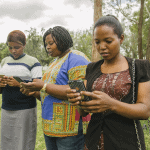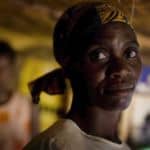Healthy Animals Make a Healthier World: How Expanding Animal Care Can Advance the SDGs and Support Farmers in Sub-Saharan Africa
Sub-Saharan Africa (SSA) is home to some of the most rapidly growing livestock populations in the world, and the region is also experiencing some of the highest human population growth rates. Two-thirds of the global extreme poor population live in SSA, and smallholder farming is their main source of livelihood, with livestock providing up to 45% of these families’ total income. However, with over 20% of animal production losses linked to diseases globally, access to quality animal healthcare is vital to protecting not only these farmers’ livelihoods but also the region’s limited natural resources.
Those numbers illustrate why animal health is such an essential part of the continent’s continued development. As a global company with operations in 45 countries and products sold in over 100, Zoetis has the reach and capabilities to champion a healthier, more sustainable future for all species. To make that commitment a reality, we recently became the only stand-alone animal health company to align our sustainability goals with the UN’s Sustainable Development Goals (SDGs). Guided by the belief that healthy animals make a healthier world, we’re committed to expanding access to veterinary care to advance the health and wellbeing of animals and the people who care for them.
Our African Livestock Productivity and Health Advancement (A.L.P.H.A.) Initiative exemplifies this approach by expanding veterinary capabilities in sub-Saharan Africa, leading to healthier animals, communities and livelihoods for veterinarians and farmers. In addition, A.L.P.H.A.’s approach to regional development through agriculture supports five SDGs: No Poverty, Zero Hunger, Good Health and Well-Being, Gender Equality and Partnerships for the Goals. Below, we’ll explore how the initiative is working to maximize animal health in SSA, and the impact these efforts can have throughout the region.
The Impact of Animal Care in Sub-Saharan Africa
The A.L.P.H.A. Initiative launched in 2017 after several roundtable consultations with industry stakeholders in Ethiopia, Nigeria, Tanzania and Uganda, including representatives from labs, universities, government departments, trade industry groups and farmer organizations, as well as chief veterinary officers. In these discussions, we learned that access to quality vaccines, medicines and diagnostic labs, as well as to animal healthcare education for farmers and veterinarians, was often dependent on inconsistent government funds. Local para-vet and animal healthcare worker schemes were also limited by government funding, and there was a lack of farmer-level inclusion in improving the health, productivity and welfare of livestock. Yet despite this need for additional funding, we also found that short-term donor-funded projects could be an obstacle to developing a longer-term regional strategy.
It was clear that a sustainable infrastructure for animal care could help farmers implement the correct and responsible application of disease prevention and treatment to not only improve the health of their animals but also increase the return on investment in animal health — an impact that would have a ripple effect on the physical, financial and social wellbeing of communities across the region. In partnership with the Bill & Melinda Gates Foundation, Zoetis launched the A.L.P.H.A. Initiative based on this shared vision of holistic community development through agricultural transformation. These efforts are informed by input from private and public partners, both in SSA and internationally, to leverage a multisectoral perspective.
Building a Networked Infrastructure
In response to this input, we’re working to expand the medicalization of livestock through access to veterinary training, services and products, as well as a large network of diagnostics labs equipped to help farmers diagnose and treat production diseases. Basic serology labs require relatively low training, startup and running costs, and a network of small labs increases the sustainability of the initiative while benefiting a large number of communities. The labs, initially fully funded by A.L.P.H.A., charge for their services with the goal of becoming completely self-sustaining.
Sustainability Through Community Engagement
In addition to infrastructure, accessibility and stakeholder buy-in are essential to the sustainability of animal healthcare efforts. Demonstrating the value of animal health and advocating for the adoption of a continuum of care, including detection, prevention and treatment as routine practice, is therefore imperative to community engagement.
Zoetis regularly shares research findings from epidemiological studies, designed for maximum accessibility, with farmers and other stakeholders. We provide educational services, such as technical support and training through both in-person and train-the-trainer programs, to promote the easy integration of diagnostics into farmers’ regular animal care routines. We also provide a full consultancy service to complement diagnostic results and recommend appropriate treatment and prevention measures. A purpose-built digital app further enhances these services’ ease of use by enabling animal health professionals to improve the communication and interpretation of diagnostic results. Additionally, pooled vaccination schemes, where veterinary technicians earn income by managing vaccine education, storage and administration for farmers, promote entrepreneurship and medicalization while making vaccines more accessible.
The Impact of Increased Animal Health on Communities
Expanded access to veterinary care in SSA increases smallholder farmers’ household income and helps boost their access to a safe, affordable, nutritious diet year-round, supporting the No Poverty, Zero Hunger and Good Health and Well-being SDGs. Additionally, Zoetis’ partnership with the Bill & Melinda Gates Foundation on community development through agriculture transformation exemplifies the Goal focused on partnerships.
This progress toward the SDGs can also be seen on the ground, in the communities impacted by the A.L.P.H.A. Initiative. By the end of 2020, there were 10 fully operational serology labs established in SSA through the program. To date, over 19,500 farmers, veterinarians, para-vets, lab personnel and distributors’ representatives have received training through Zoetis, with an estimated extended reach of almost one million through train-the-trainer programs. Over 650,000 diagnostic tests have been performed by labs in the initiative’s established network, and the number of veterinary products commercially available through Zoetis has increased by 900%.
The Role of Animal Health in Sustainability
The impact and viability of the A.L.P.H.A. Initiative — and more generally of community development through agriculture — hinges on efforts to decrease donor dependency and increase sustainability through farmer-level inclusion. These types of initiatives are beneficial not only regionally, but globally in their support of the SDGs.
Building on our purpose to nurture the world and humankind by improving care for animals, Zoetis recently announced Driven to Care, a global sustainability initiative that encompasses the A.L.P.H.A. Initiative and many other programs dedicated to advancing animals’ wellbeing. One such initiative is our Center for Transboundary and Emerging Diseases, through which we develop vaccines for high-impact emerging diseases: To take one timely example of the center’s work, Zoetis recently donated over 11,000 doses of an experimental COVID-19 vaccine to inoculate mammals in nearly 70 zoos across the United States, including great apes at the San Diego Zoo. We’re also in the process of opening six additional laboratories in SSA, and we have committed to training 100,000 farmers, veterinary professionals and lab technicians; increasing female representation in trainees to 50%; and treating 10 million cows and 200 million chickens by 2025. As an additional benefit to communities, our investment in diagnostics offers a translational application of testing services for all species — in alignment with the Center for Disease Control’s One Health approach — by increasing country-level testing capacity and pathways to wellbeing for both humans and animals.
These efforts promise to have positive implications on smallholder livelihoods, food security and the environment by 2025. If you’re interested in tracking our progress, our 2020 Sustainability Report offers additional insights into the A.L.P.H.A Initiative and all of Zoetis’ Driven to Care initiatives.
Jeannette Ferran Astorga is Head of Sustainability at Zoetis and President of the Zoetis Foundation.
Photo courtesy of Irina Mosel / ODI.
- Categories
- Agriculture, Environment



